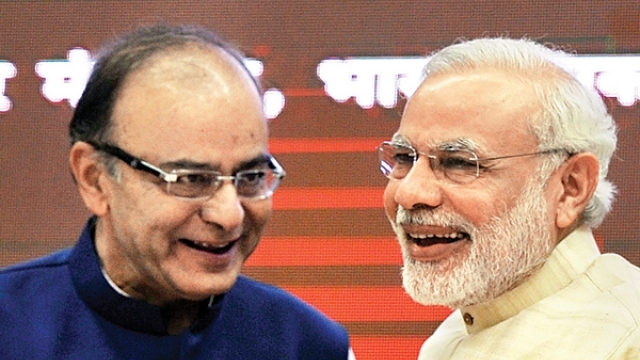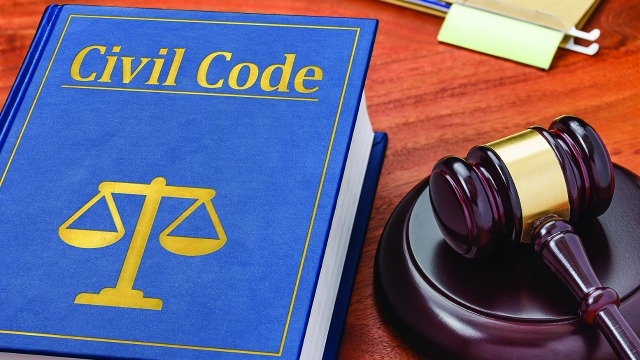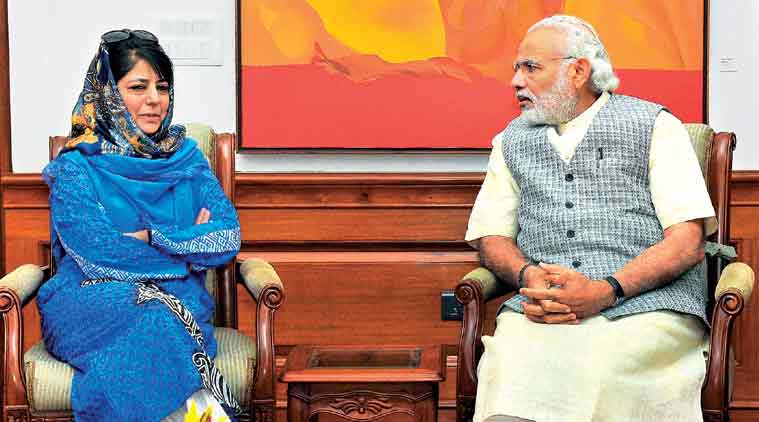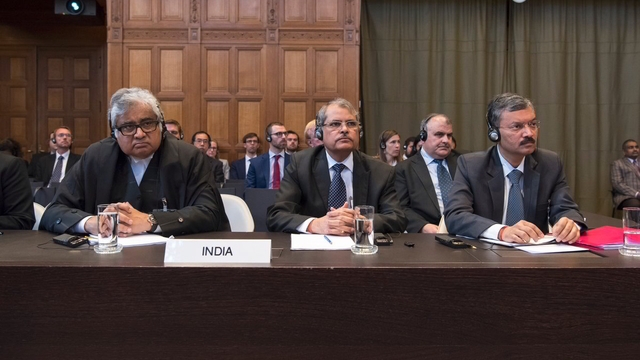
On 26 May 2017, the BJP-led NDA completed three years at the Centre. Led by Narendra Modi, the BJP came to power after a high-octane election campaign where every single aspect of the previous UPA govt was questioned. The UPA, after 10 years in power, was attacked for its so-called ‘jobless growth’, mocked over its Pakistan policy and attacked for several corruption scandals.
Running an almost presidential campaign with Modi as the face, the BJP made a host of promises like drafting a Uniform Civil Code, handling Pakistan, tracking down and bringing back black money, and abrogation of Article 370 in Kashmir.
Here is a reality check on some of those promises:
Promise 1: War on black money

PM Modi and Arun Jaitley (File Photo)
In 2015, BJP president Amit Shah finally admitted that PM Modi’s Rs 15 lakh statement was ‘political jumla’ and said: “The black money that would return to the country from abroad will be used to help the poor and the needy through schemes. Modiji had said that. If Opposition leaders like Arvind Kejriwal do not understand this, then I pity them."
A more sober, less hyperbolic interpretation lay in the BJP’s 2014 manifesto which stated:
“By minimizing the scope for corruption, we will ensure minimization of the generation of black money. BJP is committed to initiate the process of tracking down and bringing back black money stashed in foreign banks and offshore accounts. We will set up a Task Force for this purpose and to recommend amendments to existing laws or enact new laws. The process of bringing back black money to India what belongs to India, will be put in motion on priority. We will also proactively engage with foreign governments to facilitate information sharing on black money.”
While opponents like Kejriwal have often used the Rs 15 lakh phrase to attack the PM, the Centre has attacked black money on the front-foot.
On November 8 last year, PM Modi announced the decision to demonetize old Rs 500 and Rs 1000 notes, and many felt that it would result in huge political backlash. But somehow, the Modi government rode the storm of the Opposition outrage and global criticism, some from extremely esteemed circles. In fact, they turned demonetization into a tool for political victory, as evidenced by BJP’s successes in subsequent elections and cemented Modi’s image as a man fighting for change.
Meanwhile, demonetization saw some direct benefits, as N Sundaresha Subramanian wrote in this article. He argued that it resulted in a 15% jump in advance tax, 24% rise in self-assessment tax collections in 2016-17, the highest growth rate in five years.
Meanwhile, FM Arun Jaitley said that the process had helped add 91 lakh new tax-payers to the bracket, which would suggest that demonetization had shone light upon black money hoarders hiding in the darkness. Other moves from the Centre including the Black Money Act, Benami Transaction Bill, crackdown on shell companies and more cashless transactions which will continue to help the Modi govt deal with illegal money and assets.
Verdict: Chasing black money hard
Promise 2: High employment generation

In 2013, PM Modi had said that when the BJP came to power it would add ‘one crore jobs’ which the UPA couldn’t do. Meanwhile, in its manifesto, BJP attacked what it called UPA’s ’10 years of jobless growth’ and promised ‘high priority to job creation and opportunities for entrepreneurship’.
However, this is one aspect where after three years, the big promises didn’t hold up. According to a report on India Spend, the unemployment rate in the 2015-16 was 5% as opposed to unemployment rate at 4.9% in 2013-14.
Crunching the numbers, India Spend says that the NDA govt added 1.51 million jobs until October 16, which is 39% lesser than UPA’s 2.47 million in the same timeframe. But the report cautions that data from January to March 2016 as well as PMEGP data between Oct and March 2016 is missing, hence, the figures under BJP rule could be underestimated.
Verdict: Far below what was promised
Promise 3: To pass a Uniform Civil Code

In its 2014 manifesto, the BJP had promised: “BJP believes that there cannot be gender equality till such time India adopts a Uniform Civil Code, which protects the rights of all women, and the BJP reiterates its stand to draft a Uniform Civil Code, drawing upon the best traditions and harmonising them with the modern times.”
The BJP has reiterated its desire for a UCC for a long time, but this is one issue that has largely slipped under the radar except for a brief amount of outrage in July 2016, when the Law Ministry asked the law commission to examine the issue of implementation of the UCC.
This led to the usual umbrage from Opposition leaders across the spectrum, who saw it as an attempt to turn India into a ‘Hindu rashtra’. The onus to pass this lies with parliament as the SC has made it clear it couldn’t give a directive to parliament to frame a law and only lawmakers could take a call on a common code.
Which means, that if the Opposition parties decide to dig in their heels, we will have to wait at least till 2020, when BJP and its allies, are likely to have a majority in both houses. When and if they do, only then can the BJP pass such one law for all Indians.
Verdict: Probably in the offing but might take time
Promise 4: Abrogation of Article 370 in Kashmir

Mehbooba Mufti and Narendra Modi (File Photo)
The BJP has long reiterated its desire to abrogate Article 370 but their current alliance with Mehbooba Mufti’s PDP makes this issue particularly contentious. Sambit Patra, BJP spokesperson had stated in May 2015: “Abrogating Article 370 remains our core ideological concern. But, it can’t be abrogated unless the BJP gets two-third majority in Parliament. We have not put it on the back burner.”
Meanwhile, BJP’s ally and J&K CM Mehbooba Mufti had lashed out at those who spoke against Article 370 and called them ‘anti-nationals’. While one understands Mufti’s indignation at any talk of removing Article 370 given it would anger her voter-base, we will have to wait and see how BJP plays this, if and when they get a desired majority.
In the meantime, the situation in Jammu and Kashmir has considerably worsened since the death of Hizbul Mujhaideen leader Burhan Wani and the Centre is even believed to be considering the option of Governor’s rule in the state if the situation worsens.
Verdict: Article 370 not abrogated, situation in Kashmir worse under BJP-PDP
Promise 5: To deal firmly with Pakistan

Harish Salve and Team India at the ICJ (ICJ Twitter Handle)
BJP leaders, pre-2014 often harangued the Manmohan Singh government over its ‘weak handling of Pakistan’, and Modi lashed out at them for not doing enough when Sarabjit Singh died in a prison in Lahore. He said at a rally in Karnataka , "There was a need to put pressure on Pakistan. But the government in Delhi left the entire matter on his family. Sarabjit's sister cried for help to rescue her brother, but the government in Delhi did not show its power. It did not show even its diplomatic power. And, the main reason for that is that there is a weak government in Delhi."
While our most recent memory is of the Modi govt taking Kulbhushan Jadhav’s case to the ICJ where Indian lawyer Harish Salve and his team trumped Khawar Qureshi and the Pak team, his policy for our neighbours wasn’t that hawkish.
In fact, in the early days, his policy was more in the ‘Sari-Shawl’ diplomacy sphere, and after the Pathankot attack, the Modi govt even allowed a SIT from Pakistan to collect data.
What came afterwards left the Modi govt red-faced, with Pak claiming that there wasn’t any evidence to suggest either JEM or any Pak-supported group was involved.
The death of Burhan Wani, saw Pakistan hail the Hizbul terrorist as a martyr and seek to again foment mischief in the troubled valley. Modi then switched up his game as brought the B-word back into vogue, by attacking Pakistan for gross human rights violations in Balochistan.
After the horrific attack in Uri where 19 jawans were burnt to death, India gave a stinging rebuke at the United Nations General Assembly against Pakistan following it up with the defining moment in Modi govt’s Pak policy when the Indian Army revealed it had carried out surgical strikes against terror launchpads in PoK.
Even as Pak huffed and puffed, major world powers from US to Russia came out in support of India, suggesting Modi’s foreign jaunts bore fruit. More recent incidents suggest that the days of strategic restraint are long gone. There was a risk in taking the Kulbhushan Jadhav case to the ICJ, where India could’ve faced international humiliation but the Centre still did it and got ICJ to stay the hanging for now, sending a loud message to voters that that the Modi govt looks after one of its own.
Verdict: Winning the perception battle among voters
Promise 6: To make India open-defecation free(ODF) by 2019
In 2014, PM Modi spoke about the evils of open defecation in his first Independence Day speech. He also announced Swacch Bharat Abhiyaan or the Clean India Movement which intended to make India open-defecation free by 2019. That’s a huge challenge in a country where 51.6% didn’t use a toilet and while the government says the numbers have improved from 41% in 2016 to 63% in 2017, the target is likely to be missed.
While since 2014, 40 million household latrines have been constructed, there are several hindrances including behavioural issues according to India Spends. The World Bank, which had promised a loan of $1.5 billion for the Swachh Bharat Mission Gramin hasn't released the first instalment because India hasn't fulfilled the condition of announcing results of an independent verification survey, and the body rated the overall implementation as 'moderately unsatisfactory'. A parliamentary panel was told that India would miss the 2019 open-defecation target due to shortage of funds.
Verdict: Not going to hit the target of being ODF by 2019